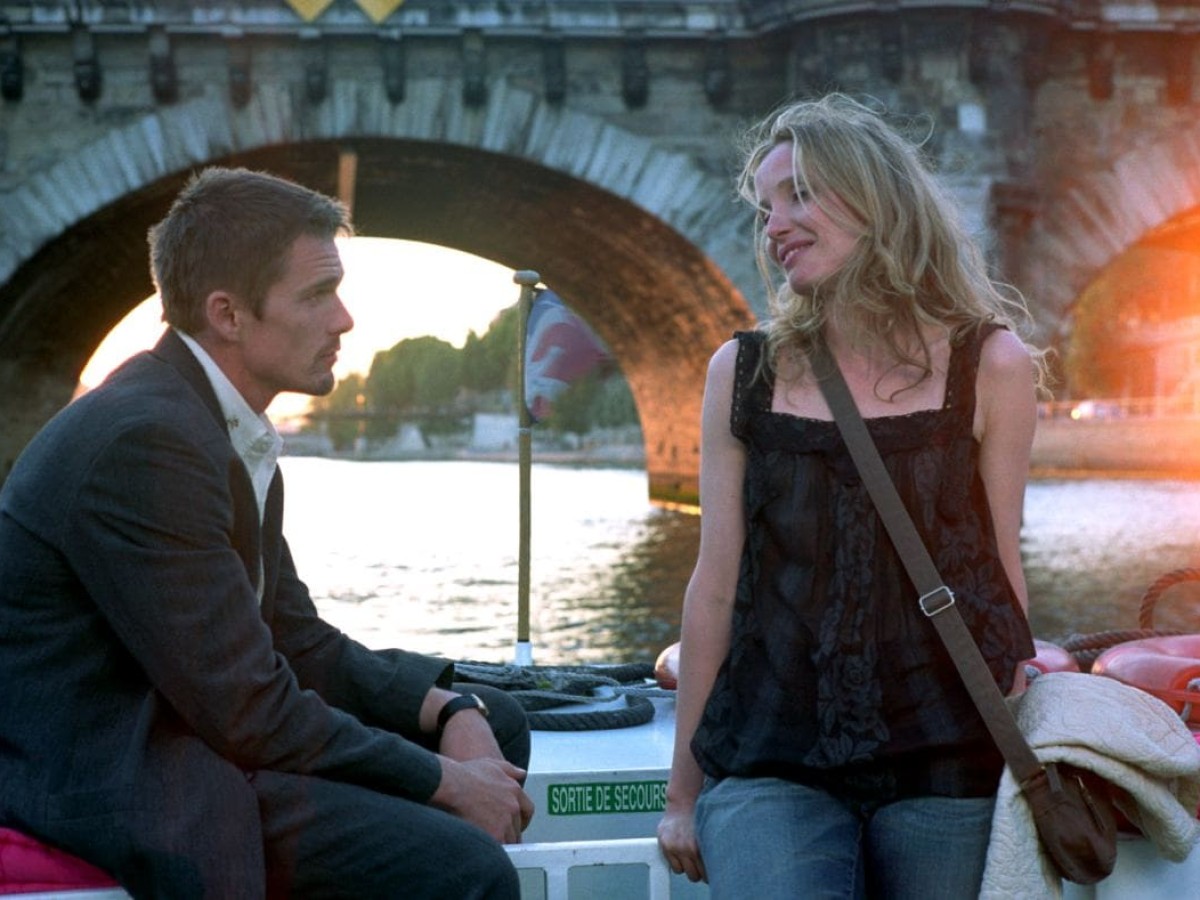Richard Linklater
June 1 to 24, 2007
13 years ago, US director Richard Linklater spent some months in Vienna shooting a film with Julie Delpy und Ethan Hawke. That film was Before Sunrise and has since come to be regarded as one of the classic “Vienna films”. In June of this year the Austrian Film Museum will stage the first complete retrospective of Linklater’s work and has invited him to return to Vienna for the occasion.
Since his beginnings as a filmmaker at the end of the 1980s and his breakthrough with Slacker (1991), an icon of the US “indie” movement, Linklater has helmed a dozen fiction films notable for their formal diversity.
His work encompasses episodic, multi-perspective works such as Slacker and Fast Food Nation (2006), the surreal animation double Waking Life (2001) and A Scanner Darkly (2006), the somewhat “counter-cultural” school comedies Dazed and Confused (1993) and School of Rock (2003) as well as the romantic explorations of Vienna and Paris in Before Sunrise (1995) and Before Sunset (2004).
And still, even to the attentive moviegoer this astonishingly diverse body of work can disclose a few surprises like his successful experimentation with other formats i.e. the early road movie It’s Impossible to Learn to Plow by Reading Books (1988, shot on Super-8), his post 9/11 documentary Live from Shiva’s Dance Floor (2003) or $ 5.15/Hr. (2004), the much-praised pilot to a comedy series about minimum wage earners in corporate America (it never went on air, presumably for political reasons).
Richard Linklater, born 1960 in Houston, TX, experienced underpaid labor first hand, having earned his living for a few years on an offshore oilrig in the Gulf of Mexico during the early 80s. It may be assumed that this early phase of odd jobs yielded a flexibility and an openness which he successfully maintained in his film work: Linklater creates politically charged films about US society, philosophical travelogues, or eccentric teenage comedies with the same pungency, ease and observational skill which he applies to more intimate settings (Tape, 2001), Neo-westerns (The Newton Boys, 1998) or smaller urban dramas (SubUrbia, 1996).
His wide stylistic range is also grounded in his vast film culture. Linklater never went to film school, but by founding the Austin film society in the mid-eighties, he created a local “school of film history”, screening works by Fassbinder, Bresson, Ozu, Monte Hellmann, Kurt Kren, Georges Franju, Straub/Huillet, and many others.
The Seventies, Linklater’s own teenage years, are often the focus of his films, not only in the superb dopehead satire Dazed and Confused. The hallucinatory formalism of his Philip K. Dick adaptation A Scanner Darkly indicates a society gone paranoid in the aftermath of post-1968 numbness: retro-futurism in the thralls of substance (and surveillance) abuse.
Linklater’s film production model is also vaguely reminiscent of a certain 70s utopia – to remain an independent and still use the film industry for one’s purposes. He has kept his home base (and close-knit circle of collaborators) in Austin, TX, while also working as a Hollywood filmmaker when the material is right – School of Rock and Bad News Bears (2005) attest to his talent as a maker of honest (and honestly entertaining) genre cinema.
The ebullience and tightness of dialogue in Linklater’s films has often been seen as a central characteristic of his work. In some cases, his actors never seem to shut their mouths, but it is an inherently cinematic version of “talking film” – these willful conversations, teaming street smartness and refined wisdom, lead to outbursts of ingenuity and foolishness, profundity and shallowness, covering the range from existentialism to chaos theory, media criticism, mathematical physics, metaphysics and the subterranean physics of pop culture.
The connection between linguistic prowess and cinematic effect becomes particularly apparent in Linklater’s romantic masterpiece Before Sunset. Here, nine years after Before Sunrise, Julie Delpy and Ethan Hawke spend the approximate length of a fiction film, one and a half hours, together on the streets of Paris; in a café, on the deck of a ship on the Seine, in an apartment.
The impeccable ending of the film in terms of timing, dialogue and choreography is the logical culmination of a body of work where art and entertainment do not oppose each other but perfectly and wonderfully blend together.
After his experience of making and promoting the highly critical Fast Food Nation Linklater has jokingly termed his kind of filmmaking “un-American”. Considering the critical comparisons of his work to that of Ophuls, Renoir or Rohmer, there might also be an aesthetic argument in this.
But that is just half the truth: his ease in dealing with the everyday, his unfaltering adherence to a social utopia and his self-ironic skepticism make Richard Linklater’s films genuinely American in the best sense of the word.
